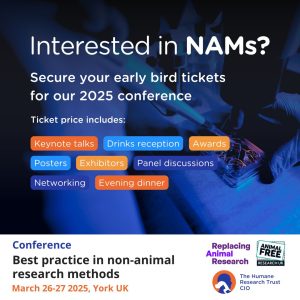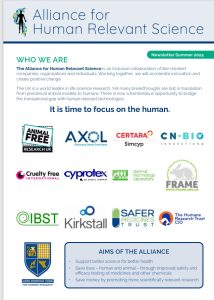
Are you a scientist who uses or is interested in using non-animal research methods to study human diseases?
We’re hosting a conference called ‘Best practice in non-animal research methods’, alongside two other leading UK funders of animal replacement research: Animal Free Research UK and Replacing Animal Research. You’re invited!
Expect inspiring talks, panel discussions, networking opportunities, and technology and research showcases. All of this hosted over two days at the Radisson York from 26 – 27 March 2025.
A limited run of early bird tickets are on sale now;
Academic: £199
Corporate: £299
Non-government organisation: £249
Student/early career researcher: £125
Secure your ticket here before the New Year!
